What Is Your Dog Saying? 6 Sounds Your Dog Makes and What They Mean
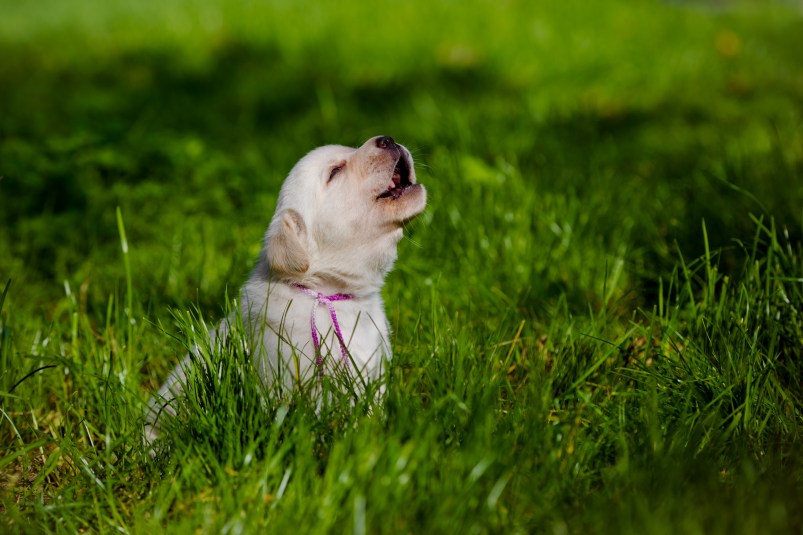
Deciphering what the different dog sounds mean is difficult — even when it feels like we speak the same language as our fur babies. But it’s worth it to learn how to decode dog speak so you always know how your pup is feeling.
Knowing the meanings of different dog sounds and why growling isn’t always a bad thing is key if you want to have the deepest relationship with your pet as possible.
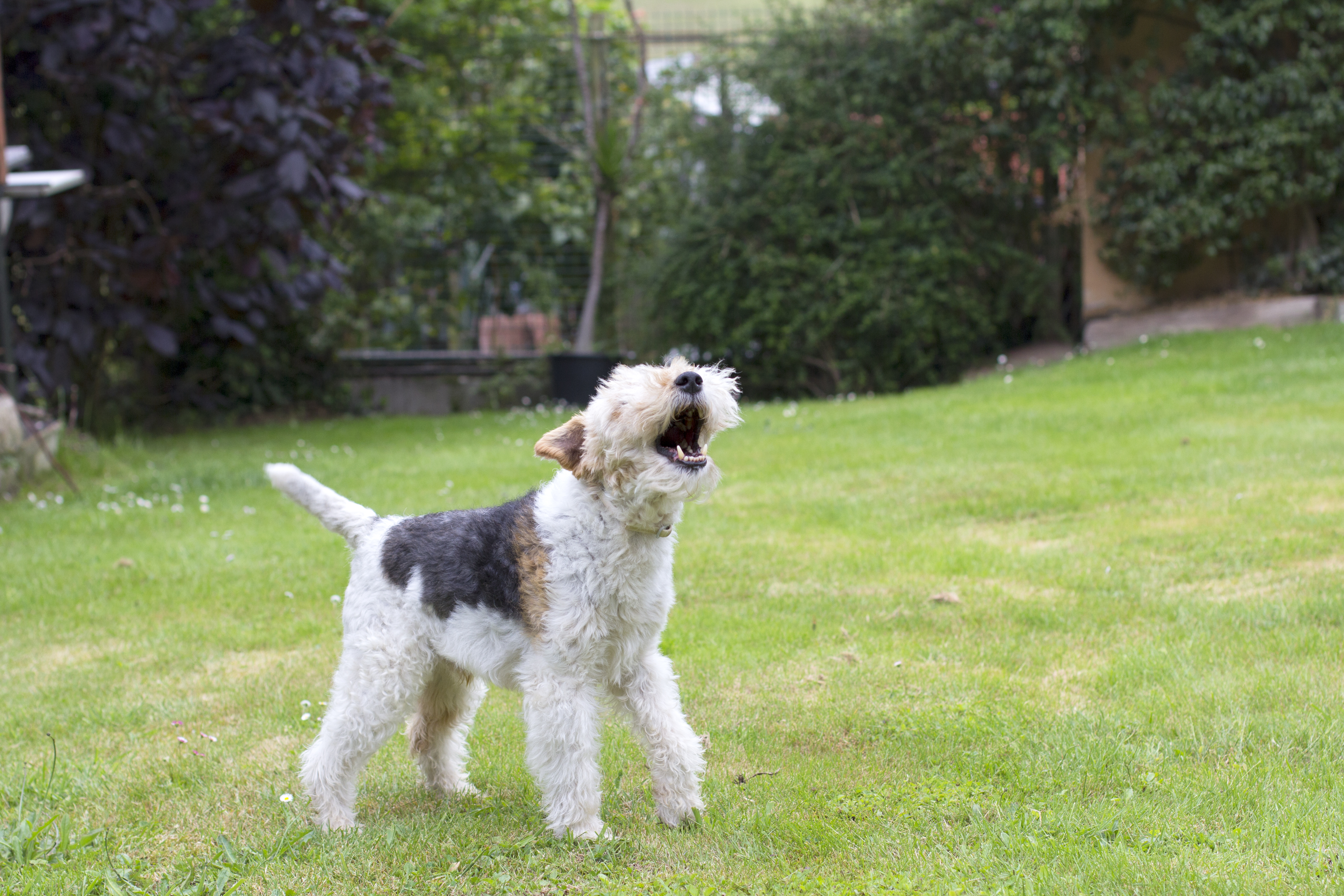
(Photo Credit: Getty Images)
Why does my dog bark?
Barking is a common form of communication for dogs, but it may surprise you to learn that there’s more than one type of bark. A dog’s woof will change pitch, duration, and frequency depending on whether he or she is warning you about the very dangerous mailman or is simply saying, “I see you have food and I want some.” Being able to determine variations in those three characteristics will make it clear what your dog is feeling.
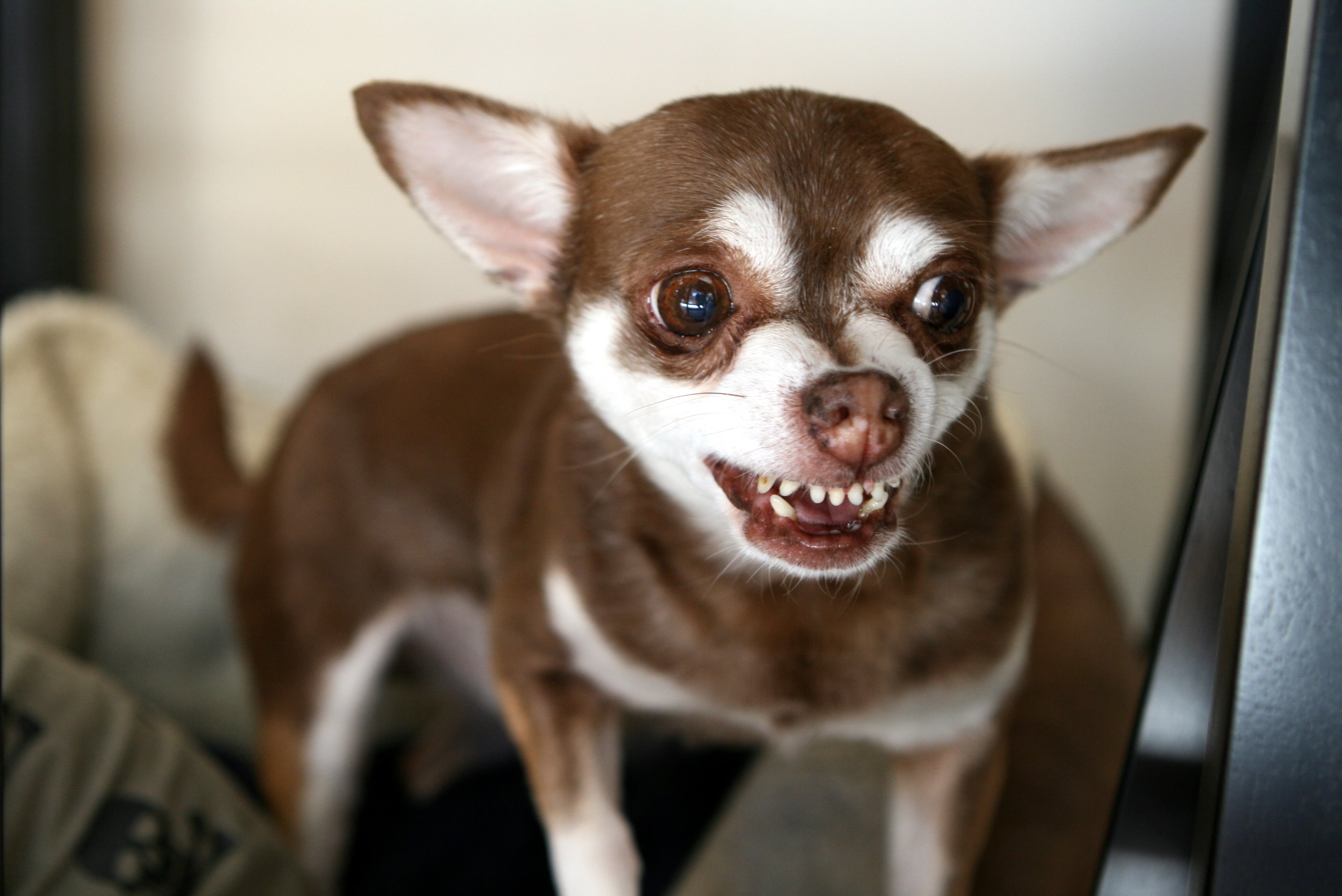
(Photo Credit: Getty Images)
Why does my dog growl?
When a dog starts growling, your first inclination might be to move away — and you should. These dog sounds are a verbal cue that your your pooch is uncomfortable, unhappy, or both. In most cases, growling can be attributed to possession aggression (you try taking a toy away), fear (a new person approaching, for example), marking territory (“this is my house and you don’t belong here”), or pain due to injury.
Sometimes dogs may growl when they’re having fun, like during a game of tug-of-war. That said, watch for signs that your dog is going to snap if the playing gets too intense — like if he suddenly stops wagging his tail. Usually, dogs will trot off with their toy if they’re done playing, but sometimes they may suddenly start showing aggressive behaviors, in which case it’s better to back off and take a break.
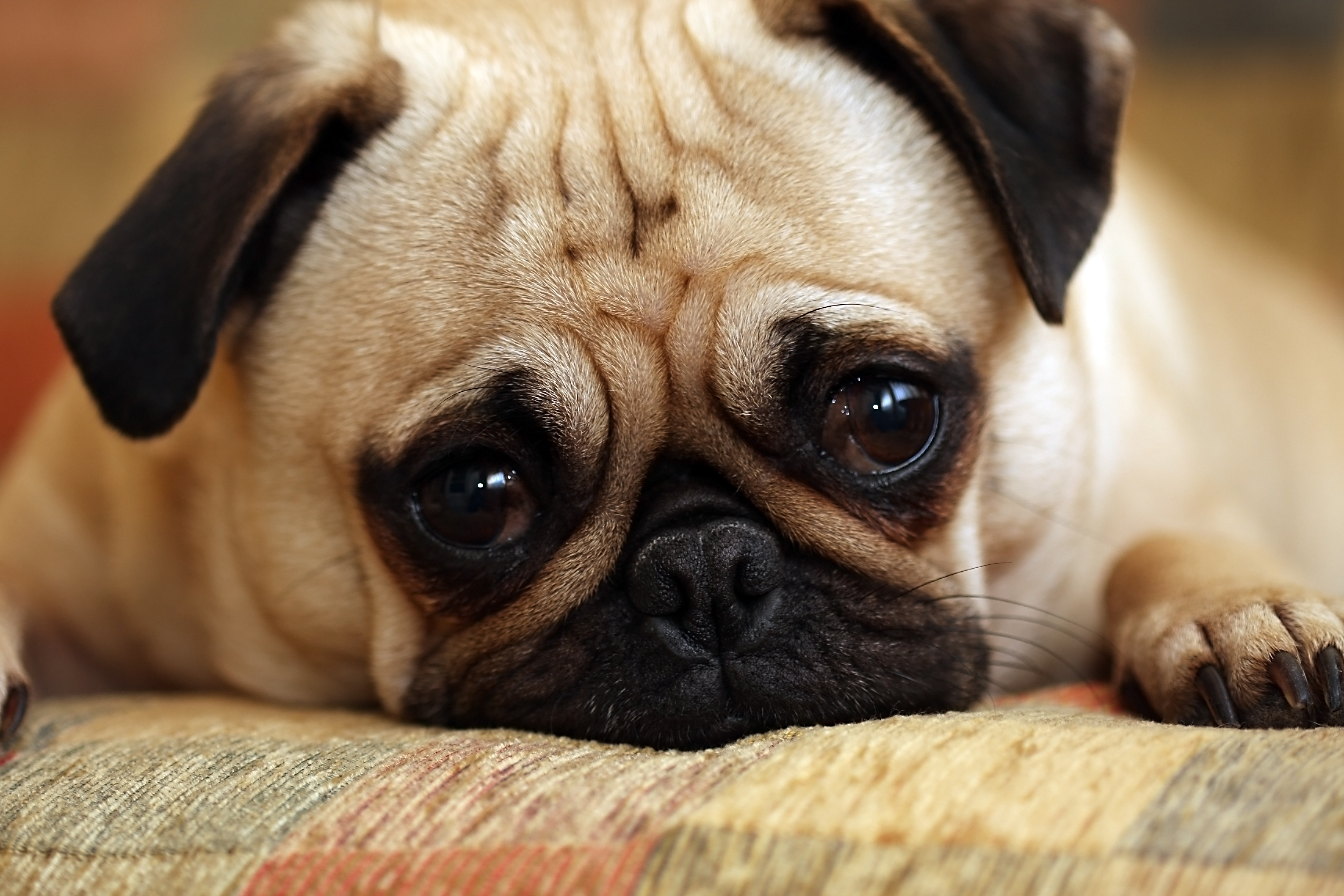
(Photo Credit: Getty Images)
Why does my dog whine?
Hearing a dog whine, whimper, or cry is one of the most heartbreaking sounds — so it’s not surprising that dog owners are desperate to know how to cheer up their pets. Pinpointing the underlying reason for a dog’s whine can be difficult, as all breeds exhibit this behavior for any number of reasons.
One common culprit is that your dog wants something. If it’s a case of a toy that’s fallen under the couch and your pup’s legs are too short to reach, you can expect the whining to stop once you’ve retrieved the missing toy. Other times, dogs may whine because they desire food or attention — and this may go on every time they want it. If this is the case, don’t give in to those pitiful cries. The only way to break your dog of this bad habit is to stop indulging him or her.
Fear or pain can also elicit whining from your dogs, so keep an eye out for stimuli that’s potentially bothering them. Fortunately, the source of your dog’s discomfort may be obvious: an unfamiliar house guest, a boo boo at the paws of your cat who was not in the mood to play, or watching you leave for work every day. Taking steps to address your dog’s specific issue should clear up the case of the whimpers asap.
Another explanation for your dog’s whining is that he’s simply saying sorry. If you came home to an overturned trash can and kitchen scraps all over the floor, you may be greeted with a very guilty look and some sad whining. Of course, it’s hard to stay mad when they turn those puppy dog eyes to full power. Just give them a few good head scratches to show you accept the apology and things will go back to being hunky-dory.
Why does my dog grunt?
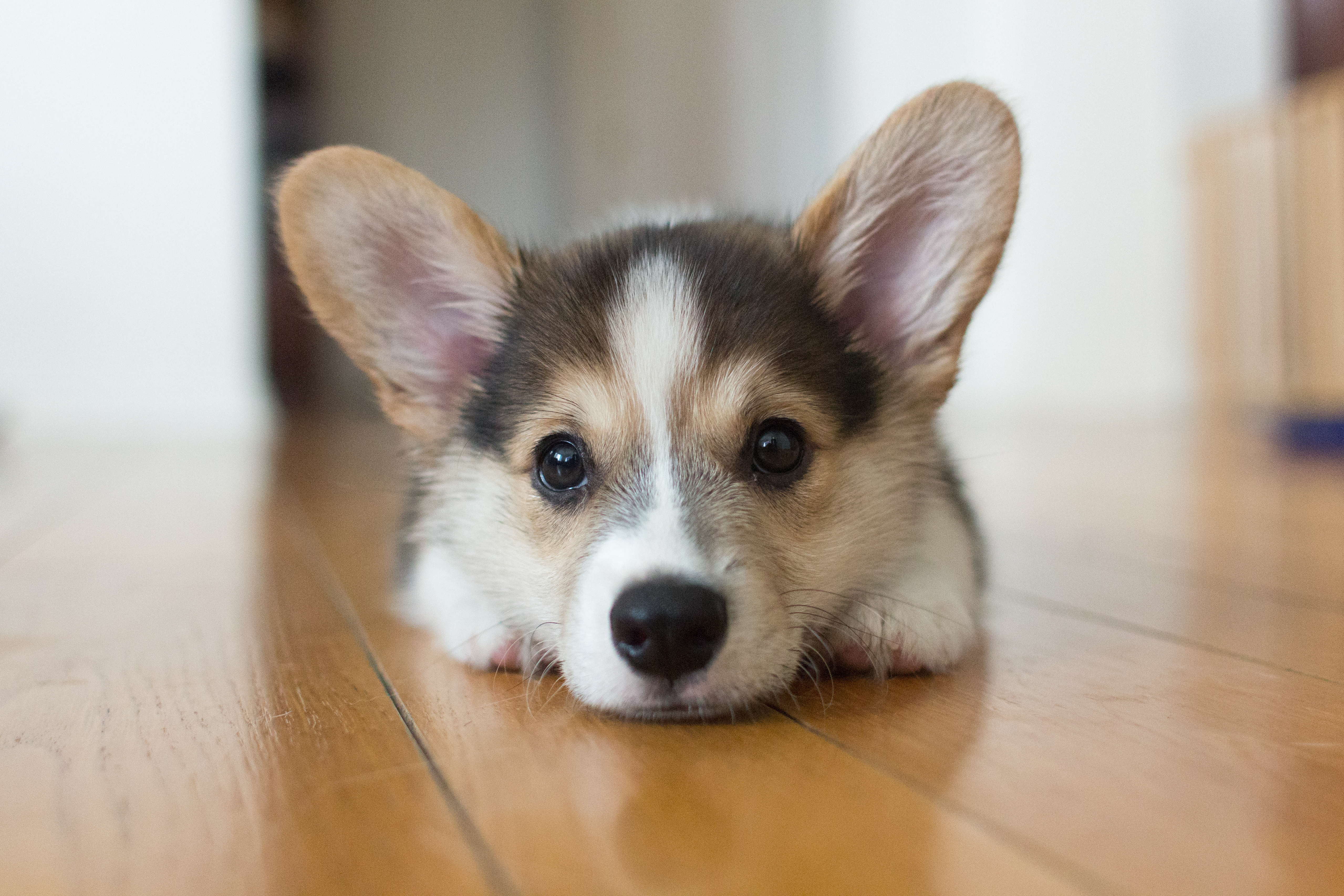
(Photo Credit: Getty Images)
Consider it a compliment if your dog starts grunting the next time he’s sprawled out on your lap. Grunting is an expression of contentment; think of it as the canine equivalent of purring.
Wait, but what about grunting during sleep — should I be worried? If your pup has a tendency to grunt while sleeping, don’t freak out. It’s possible that grunting is an involuntary behavior that happens during sleep and is the result of hard breathing slowed down. Sadly, some dogs may grunt during sleep if they’re having a stressful dream.
It may be time to schedule an appointment with your vet if you notice your dog grunting a lot. This could be a sign of a respiratory issue, so it’s best to have an expert look things over.
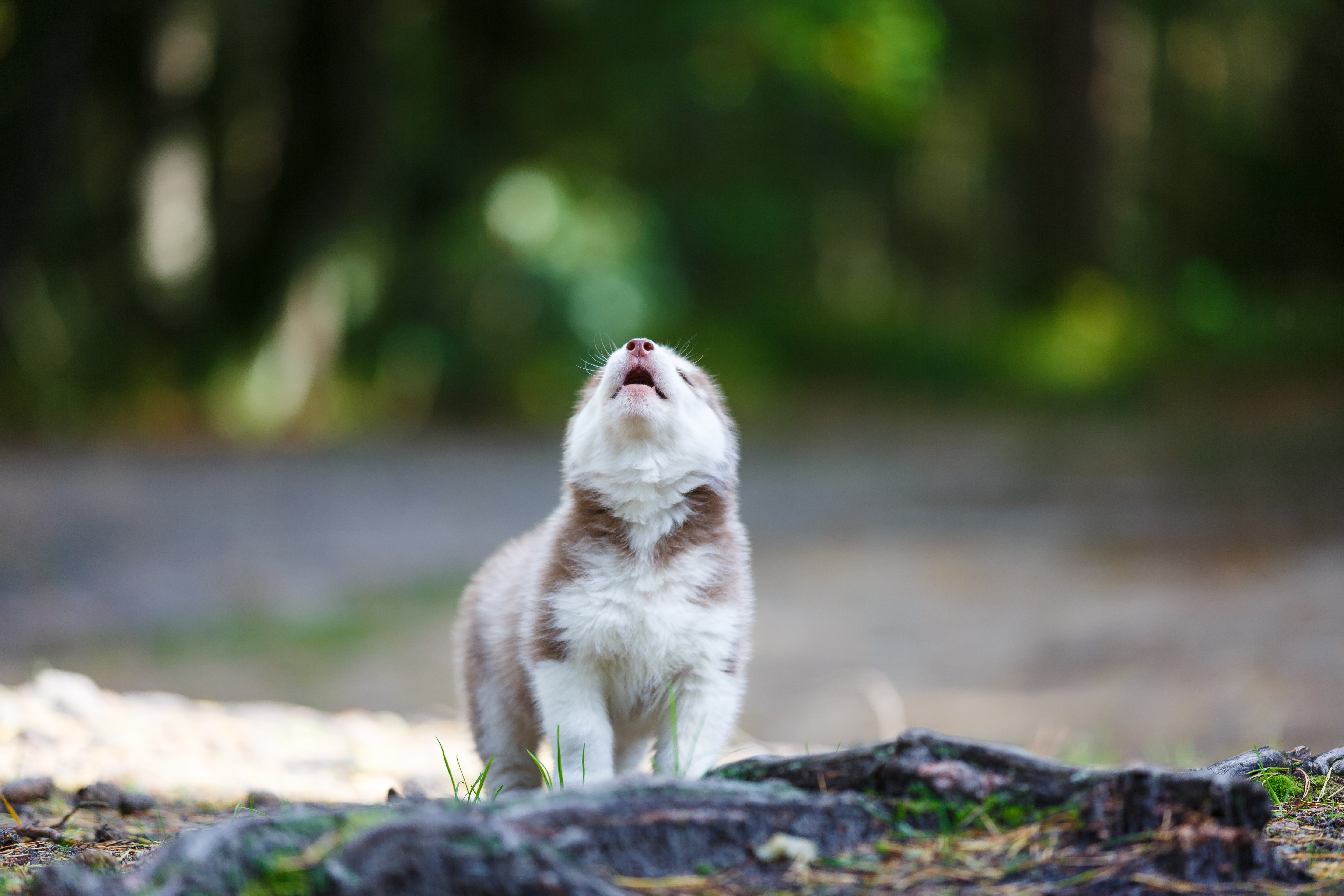
(Photo Credit: Getty Images)
Why does my dog howl?
We don’t blame you for wondering, “Why does my dog howl?” after an ambulance drives by or your dog hears another dog yowling in the distance. It’s likely that dogs have the urge to bay as a result of being descended from wolves, which are often depicted as howling at the moon. As long as it’s not a chronic issue that’s seriously affecting your health (like keeping you up at night), howling shouldn’t be cause for concern.
Howling dogs may also be communicating their location to you or their fur brothers and sisters, essentially saying “I’m over here!” Other times, dogs howl to warn someone or something to back off.
Sometimes, howling can be a symptom of more serious health issues. If you notice your dog howling more frequently, it may be time to visit the vet for a checkup. Separation anxiety may also elicit howls from your hound — which may totally break your heart to hear. Fortunately, there are things you can do before leaving that will calm your dog down and reduce his or her anxiety.
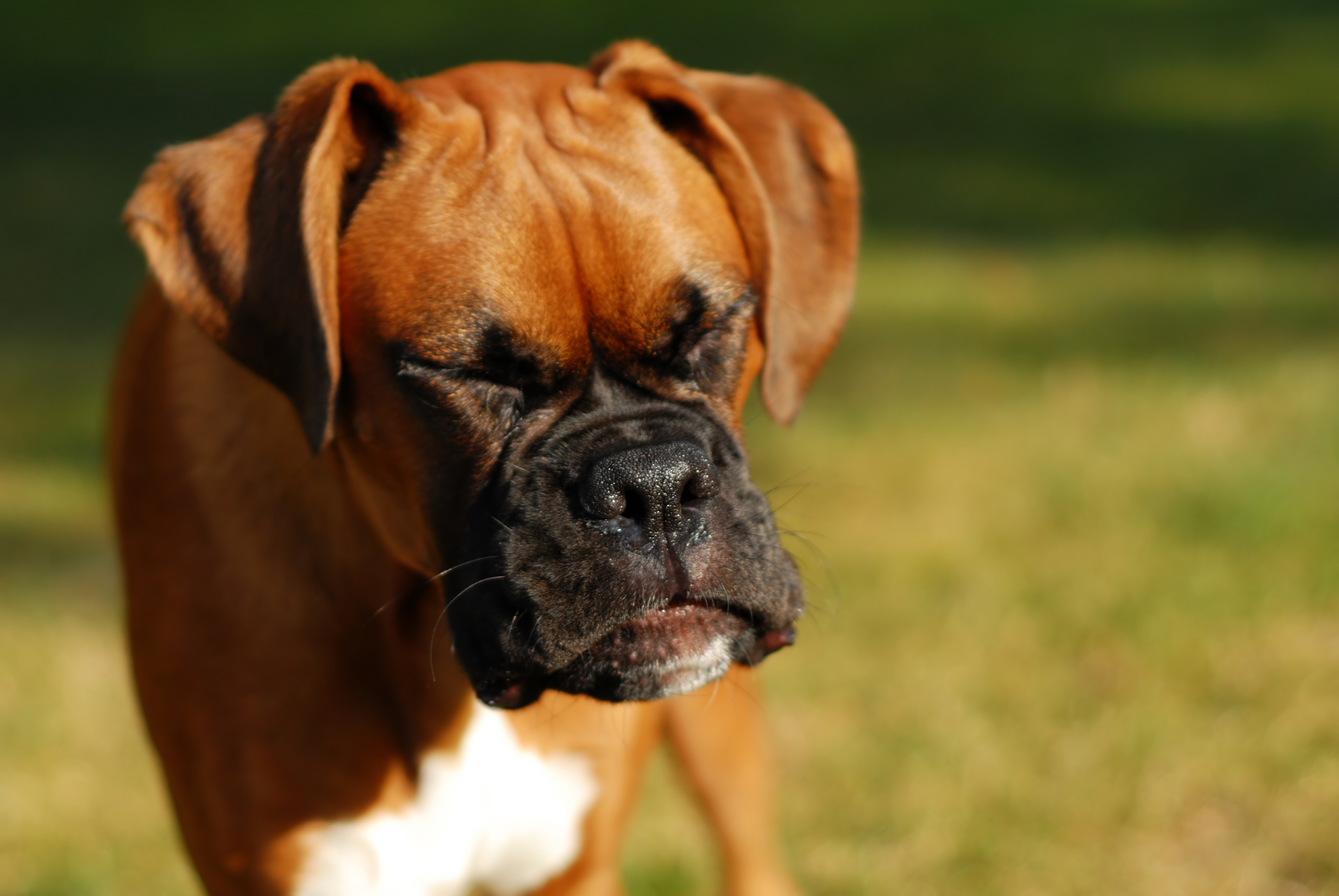
(Photo Credit: Getty Images)
Why does my dog reverse sneeze?
Reverse sneezing in dogs is common among breeds with broad and short skulls, like French bulldogs, pugs, boxers, and American bulldogs. It sounds like a quick succession of deep inhalations followed by silence before wheezing.
Experts aren’t exactly sure what causes reverse sneezing, but they believe it may be due to irritation in the nose or throat. Reverse sneezing may also be caused by over-excitment or the dog trying to remove mucus. Fortunately, reverse sneezing isn’t known to be bad for dogs, and most pups are perfectly fine after an episode.
Even though reverse sneezing isn’t believed to be dangerous, it can still be a pretty awful sound to listen to. We totally don’t blame you for wanting to know how to stop a dog’s reverse sneezing. Blowing on your dog’s face or pinching his or her nose and scratching the throat area may be silence a particularly annoying case of reverse sneezes.
Sometimes the dog can be the most vocal member of the family — and now you’ll know what they’re trying to tell you.












